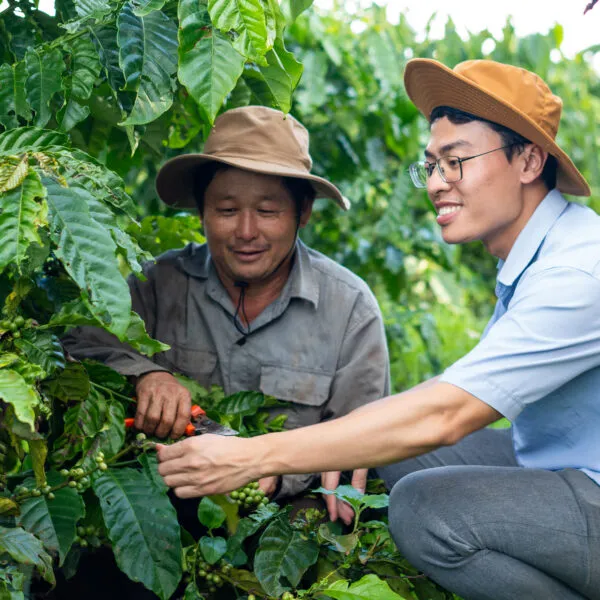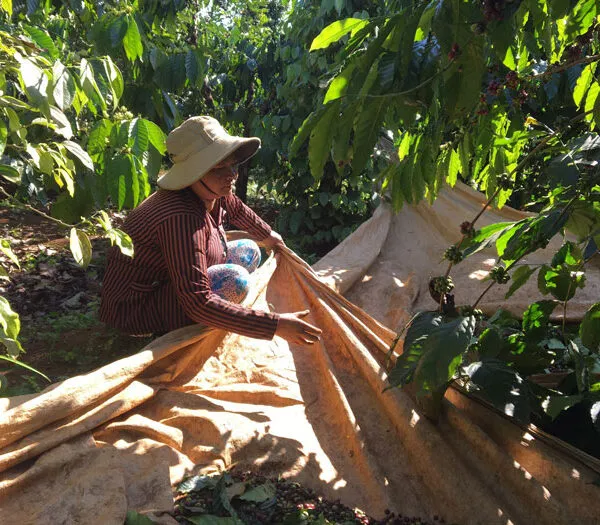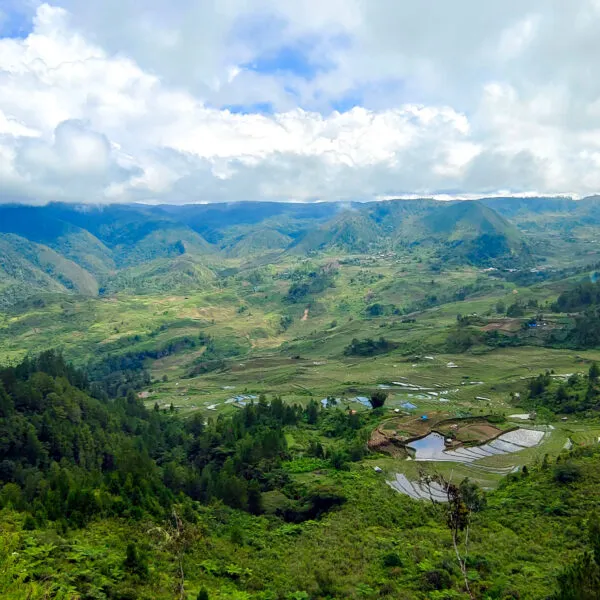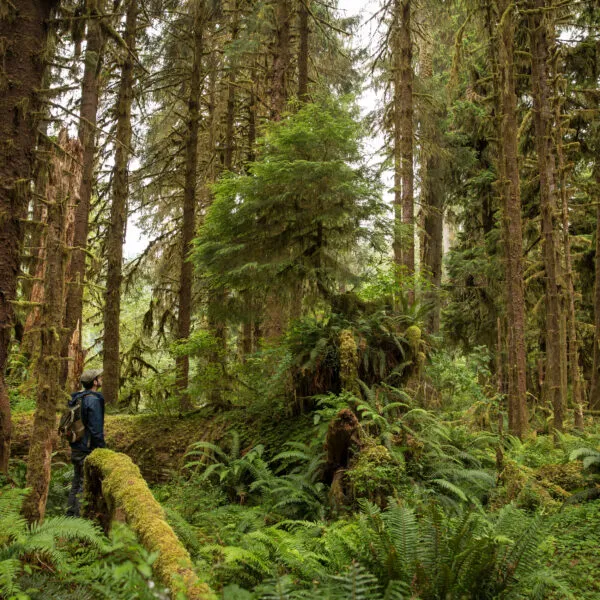Indonesian coffee is appreciated around the world, ranking fourth in global coffee production. An estimated 1.8 million smallholder coffee farmers across the country produce a third of all Robusta beans worldwide. However, the industry faces pressing social and environmental challenges—from climate change to rural poverty and human rights abuses.
To accelerate the transformation of Indonesia’s coffee sector, the Rainforest Alliance, in partnership with GIZ (Deutsche Gesellschaft für Internationale Zusammenarbeit), will provide training support for local smallholder farmers and other supply chain actors across the country’s Central Sulawesi province. This project aims to train 1,000 farmers (including a minimum 30 percent women and youth) in more sustainable growing practices, while also providing technical assistance and expert guidance to create an action plan to protect biodiversity and improve rural livelihoods.
Official project name
Capacity Building on Inclusive and Sustainable Coffee in Central Sulawesi, Part of Giz SASCI+ Programme
Locations
Indonesia, Central Sulawesi, Poso District, at the buffer zone of Lore Lindu Biosphere Reserve
Project period
2022-2024
Key commodities
Coffee
Priority issues:
- Climate-smart agriculture
- Climate resilience
- Livelihoods
- Gender equality
Project Objectives
- Farmer training: Implement the Rainforest Alliance Sustainable Agriculture Standard
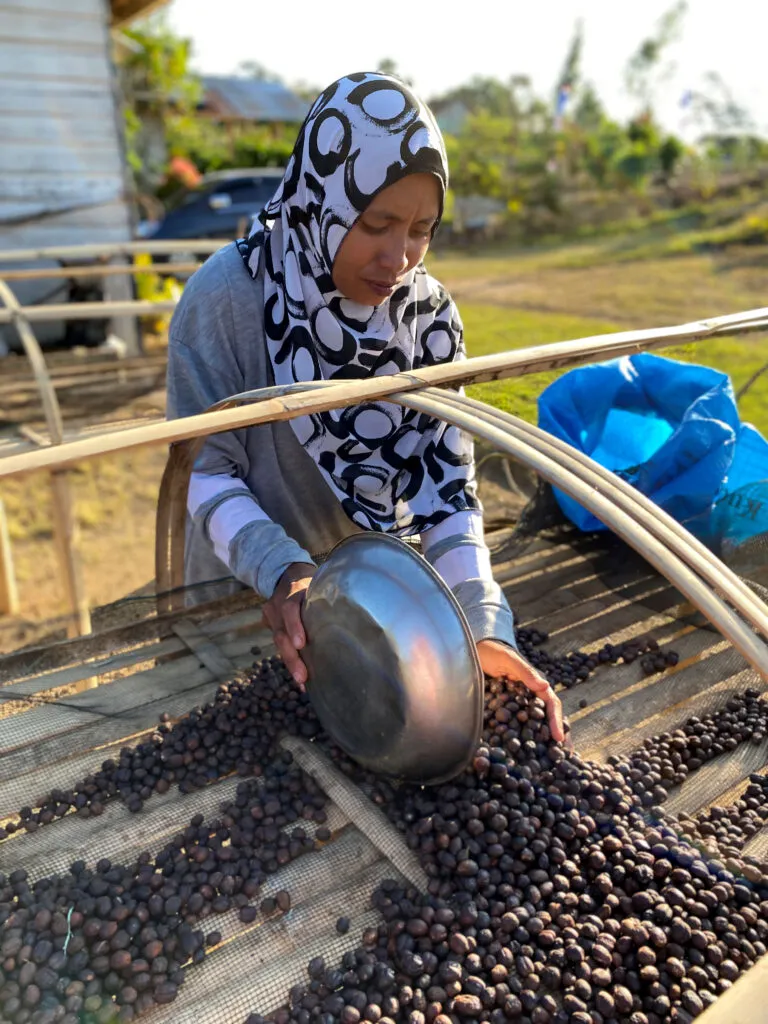
To help farmers achieve Rainforest Alliance Certification, we will train farmers on the requirements of our 2020 Sustainable Agriculture Standard (SAS). This is a rigorous set of requirements designed to help farmers boost crop productivity and build climate resilience through nature-friendly growing practices that improve soil health, protect water, and biodiversity. The standard also aims to improve livelihoods and advance the rights and wellbeing of farmers and their communities. The project will provide comprehensive field-based training for agricultural trainers, ensuring they have a thorough knowledge of SAS requirements—and the skills to pass on this knowledge to local farmers. Training will cover sustainable agriculture practices such as intercropping with shade trees and reduction of agrochemicals.
By the end of the project, 1,000 farmers (minimum 30 percent women and youth) will have benefited from this training.
- Improved livelihood opportunities for women and youth
To help create diversified income streams for coffee-farming families, the Rainforest Alliance will support women and youth to set up community-led enterprises. In the pilot phase, we will work with 50 local women and youth and focus on diverse forest products like coffee powder and other products to support the development of local tourism. To ensure the sustainability of these ventures, the Rainforest Alliance will conduct extensive market research to improve access to markets and financial services.
Funder
Deutsche Gesellschaft für Internationale Zusammenarbeit (GIZ) GmbH
Rainforest Alliance contact
Intan Diani Fardinatri Coffee Team Manager (project manager for this project), ifardinatri@ra.org

